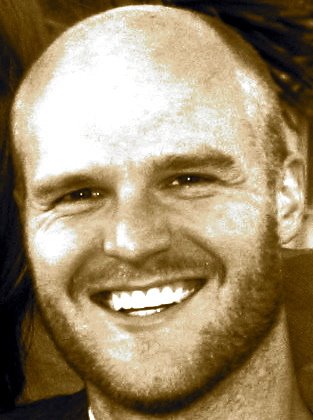Dinner Faux Pas
 You are not supposed to talk about two things at the dinner table: Politics and Religion. However, everyone knows that the person passing the peas doesn’t agree with the one passing the salt. How are Christians supposed to think about these two hot potatoes in the public arena - especially as Christianity is increasingly unacceptable? Is it possible to separate belief from politic? How is the Christian supposed to live in the public realm with those who don’t agree with their convictions? Probably the same way that people who are not Christians live, they debate their beliefs. It amazes me how people will put Christianity in its own category of acceptable on Sunday discussions but not on November 2nd. Secular humanism is a belief in the ability of man to redeem himself. A belief. It permeates people’s actions and politics. Yet, they are not told to keep it to themselves...that it has no place here. Yesterday, I mentioned an article by Greg Koukl from Stand to Reason. I would recommend reading it...about 5 minutes. So my question to you, reader, is how do you reconcile and explain how religion and politics intersect...and if they should. Maybe these snippets from the article will whet your thinking: - My problem with the two kingdom position, though the distinction is a fair one, is that I think it picks at nuances when we actually get into practice here. In other words, it's okay for a Christian to campaign against abortion if he's not identifying himself with a church building. It's okay with a group that's not associated with Christianity officially, but if he says it inside the church he's done something illegitimate. To me that seems to be an inconsequential distinction. - The substance of Christianity is not a political viewpoint or even a moral perspective, even if the moral perspective is correct. The substance of Christianity is a narrow area of gospel that pertains to the truth about God, and the truth about Jesus Christ, and the truth about the work of the cross and how we enter into that. In this regard, I think it is very good that we clearly delineate between the kingdom of God in that sense and the kingdom of man. - On the other hand, part of being a participant in the kingdom of God is that we are to be salt and light, and we are to encourage the appropriate role of government being a punisher of evil doers and a praiser of those who do right, and also seek for justice in the land...Now obviously making a better world is not going to save the world. And that's what I mean by not confusing my political viewpoints that are an expression of the dignity of man, and the image of God in man, and Christian morality, and the Gospel itself, because even by protecting unborn children we're not going to save their souls. That's a separate issue. Both are incumbent upon the church. Gospel and goodness. I think there are two extremes here that are out of balance because they don't take in the full counsel of God in integrating them. I'm concerned for both sides that speak in this fashion. - Now I made a comment earlier this afternoon about clarifying the difference between gospel and political points of view. There is a relationship between the two, as I argued, but I think we have to keep them distinct so that we don't end up saying foolish things like if you believe in abortion you can't be a Christian, or that you couldn't be a Christian and a Democrat at the same time. Those are foolish things because they are not true. |



Comments on "Dinner Faux Pas"
post a comment